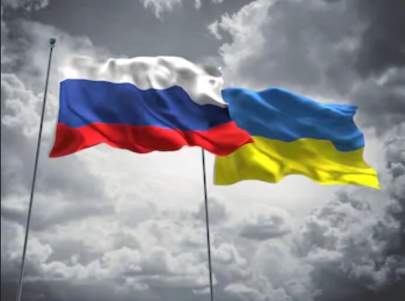False Flag Operations - Propaganda, deep fakes, and old-fashioned skullduggery
By Scott Tilley - ASCF Senior Fellow

April, 2022 - The Merriam-Wester dictionary defines the term “false flag” as “a hostile or harmful action (such as an attack) that is designed to look like it was perpetrated by someone other than the person or group responsible for it.” Stanford University’s Hoover Institution has a similar definition: “a false-flag operation is a deliberately planned ruse to make it seem like a state has been attacked, thereby justifying retaliatory military operations against the purported offender.” The Hoover Institution also points out that false flag operations are nothing new: “The term ‘false flag’ goes back at least to the age of piracy when pirate ships would fly a deceptive flag (of a friendly or neutral state) to lure their prey within striking distance before running up the Jolly Roger and attacking.” The Jolly Roger was the skull-and-crossbones flag of pirates for centuries.
False flag operations have had disastrous effects on modern society. Consider how World War II started on September 1, 1939, when Germany invaded Poland. The trigger for the war was an incident at a German border outpost on the evening of August 31, 1939. What appeared to be soldiers wearing Polish army uniforms attacked the Gleiwitz Radio Station on the German/Polish border. The media dutifully reported the “unprovoked” attack – including the BBC. But the attack was a charade orchestrated by Hitler to provide a pretext for his invasion of Poland the next day. The Polish soldiers were actually a seven-man SS team that stormed the transmitter station disguised as Polish insurgents. The attack (and several others that occurred the same night) were classic false flag operations.
Sadly, we’re seeing false flag operations take place today, but much more technically sophisticated, with the ongoing Ukraine/Russia conflict a prime example. Russian forces have claimed that the wanton destruction and attacks on civilians in Ukrainian cities such as Bucha were not perpetrated by Russian soldiers but by Ukrainians pretending to be Russians. The Russians even provided video evidence they said backing up their claim, showing how actors and mannequins were dressed and made to look like victims. At first glance, the videos seemed authentic, but they were later found to have been recorded several days earlier – and in Russia.
False flag operations rely on several techniques, some old and some new, to succeed. First, they use propaganda to spread misinformation and outright lies, but it’s now amplified through social media and automated “bots” that swamp the Internet. They use “deep fakes” to create the illusion that someone is speaking – but the person never said the words. An image of the person, such as a high-ranking military officer or politician, is used as a template. This mock image is then animated with a prepared script. Artificial intelligence creates incredibly realistic deep fakes, so accurate that only experts using counter-measure software can detect whether the video is real or manufactured. This type of technical power makes false flag operations even more of a threat.
One way of reducing the impact of false flag operations is to provide compelling evidence of their planned attack before it occurs. This has been happening in Ukraine quite often, and with good results. Intelligence agencies are usually reluctant to publicize sensitive information regarding an adversary’s movements. However, for the last few months, the UK (MI6, GCHQ), the US (CIA, NSA), and other NATO allies and partners have released convincing evidence of false flag attacks planned by the Russians. The false flag operation usually doesn’t occur because the element of surprise has been eliminated, and the technical and operational plans have been made public.
There is a genuine concern that the Ukraine/Russian conflict could quickly spiral out of control and land us in World War III, complete with the use of nuclear weapons. For example, a false flag operation, where the Russians claim the Ukrainians attacked soldiers or civilians within Russia’s borders, might be enough for Vladimir Putin to launch a tactical nuclear strike somewhere in Ukraine. A tactical strike doesn’t sound as bad as a strike by a strategic missile aboard an ICBM, but it would be terrible. According to Scientific American, “Russia possesses some 2,000 tactical nuclear weapons kept in storage facilities throughout the country, developed to be used against troops and installations in a small area or in a limited engagement.” Consider that the atomic bomb dropped on Hiroshima had a yield of about 15 kilotons (equivalent to 15 thousand pounds of TNT); modern tactical warheads can detonate with a force of up to 50 kilotons.
The world stumbled into World War I with the assassination of Austrian Archduke Franz Ferdinand on June 28, 1914. We were duped into World War II through a Nazi false flag operation in 1939. Let’s hope we can avoid accidentally backing into World War III in 2022 through the misuse of technical power by a nuclear-armed state determined to forcefully appropriate what the international community generally agrees is not theirs to take: another sovereign nation. If such a move were successful, it would undoubtedly embolden other states to consider similar actions to take control of coveted assets – like Taiwan.
###











